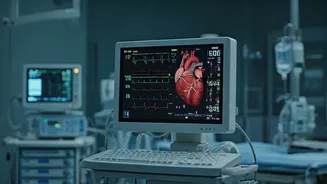Recognize The Signs
It is very important to recognize the symptoms of a heart attack to take immediate action. Chest pain or pressure, radiating pain, shortness of breath,
sweating, nausea, vomiting, and lightheadedness are indicators that require immediate medical attention.
Call For Help!
Calling for immediate help is crucial. Use 911 or your local emergency number, providing a detailed description of your location and symptoms, and stay on the line with the dispatcher. Do not attempt to drive yourself; wait for emergency responders who can provide the necessary care.
Stay Calm and Still
It is extremely important to stay calm to reduce the stress on the heart. Find a comfortable position, avoid unnecessary movement, and take slow, deep breaths to manage anxiety. Focus on your breathing while waiting for help.
Administer Aspirin (If Able)
If you can, and you have it, chew and swallow an adult aspirin tablet (325 mg) or four low-dose aspirin tablets (81 mg each) to thin the blood and reduce clots, unless you are allergic or advised against it by a doctor. Always consult medical professionals.
Additional Considerations
If you have any pre-prescribed medications for heart problems, use them as directed, and communicate your medical history and medications to the arriving medical professionals. Maintain a safe and clear environment.















